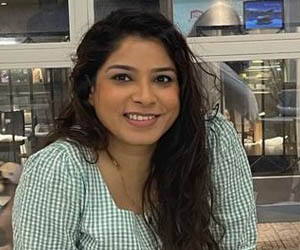On 12 December 2023, the Vivekananda International Foundation (VIF) organised an interaction with a ten member visiting delegation of political leaders from Nepal. Dr. Arvind Gupta, the Director VIF, gave the introductory remarks, followed by the interaction. From the VIF, Amb Ranjit Rae, Gen Ravi Swahney, Brig Vinod Anand, Dr Angana Kotokey, Dr Anchita Borthakur, Aarushi Gupta and Dr Cchavi Vasisht participated in the event. The Nepalese delegation comprised of Mr. Kabindra Burlakoti (Rastriya Swatantra Party), Ms. KrantiShikha Dhital, (Rastriya Swatantra Party), Mr. Deepak Kumar Sah (Janmat Party), Ms. Goma Bist (Communist party of Nepal (Unified Socialist)), Mr. Surya Prasad Pathak (Communist Party of Nepal (Unified Marxist Leninist)), Ms. Sunita Baral (Communist Party of Nepal (Unified Marxist Leninist), Mr. Ram Ashish Yadav (Janata Samajwadi Party), Mr. Nain Singh Mahar (Nepali Congress), Mr. Ajay Shankar Nayak (Communist Party of Nepal (Maoist Centre)) and Ms. Renu Chand (Communist Party of Nepal (Maoist Centre)).
In the introductory remarks Dr Arvind Gupta emphasised that India and Nepal share close social and cultural relations which are established through religious beliefs and pilgrimage, marriages and kinship ties, and similar civilisations. The discussion reiterated these sentiments in the entire discussion. During the discussion emphasis was made on building economic ties. For long, India was the key destination for the youth to migrate for education and employment. However, now the destinations are changing. It was stated during the discussion that the youth of Nepal have seen blockages and border disputes, and not the era of Mahabharata and Ramayana. The youth does not understand these old civilisational ties and thus a need to renew these relations for instance, the projects on the construction of Ramayana circuit and Buddhist circuit must get attention. The two sides also raised concerns about the slow implementation of hydro power projects, which are a vital point of connection between the two sides.
Both sides reiterated that Nepal is a sovereign nation, and any geopolitical relations are free from influence of other factors. It must be noted that in the past few years, China has repeatedly factored in discussions on India and Nepal. Both sides stated that this must be avoided to maintain sovereignty of Nepal. The brewing trust deficit between the two countries must be addressed. The discussion focussed on PM Modi’s concept of Global South and wished that the two countries walk together the path of development. Here one of the respondents also stated that Nepal had wished to be called for G20 as India held the presidency for the year 2023. Questions were also raised about the relevance of SAARC and whether BIMSTEC would replace SAARC in future.
The discussion highlighted few of the priority areas where collaboration and efforts can be taken from the two sides. First, there is an enhanced need for engagement. One of the suggestions given during the interaction was to coordinate relations between provinces of Nepal sharing more than 1800 km of land boundary with Indian states such as Uttar Pradesh, Bihar and Uttarakhand. The present times are seeing crises across the world, and in this backdrop there is a need for establishing regional closeness. Despite the SAARC not working effectively, there is a need to continue regional cooperation through other frameworks such as BIMSTEC and BBIN.
Second, Nepal looks at India for providing employment opportunities especially in the IT sector where India is advancing with its Digital India programme. Since both countries predominantly have agriculture as their primary contributor to GDP, cooperation can also be built in agricultural sectors. It was also recommended that the two sides could start manufacturing electronics so that the economies are integrated. It was also suggested that the two sides could collaborate in academic areas as well. Dr Gupta suggested that the two sides could collaborate and work on projects on Himalayan ecology at bilateral level given there are growing concerns of climate change.
The closer the ties, it is inevitable to have certain problems. The two sides can thus collaborate at multiple levels to reestablish and build on old civilizational ties and ensure economic and strategic cooperation in times to come. Building connectivity and trust is important in present times. There is a need to go beyond broader concerns, and focus on sector specific projects and building supply chains which can enhance closer cooperation. It is essential to create a united regional approach which can be generated by engaging in strategic dialogues.






Post new comment